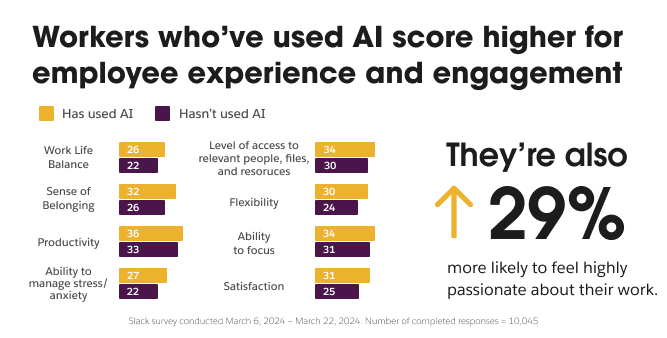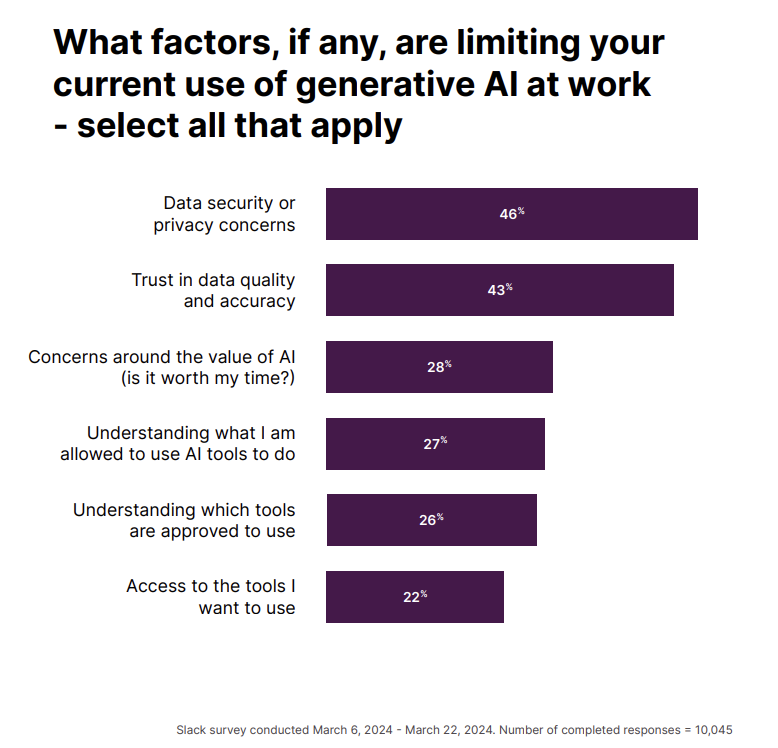
New report shows AI's benefits on productivity, work-life balance, satisfaction

Nearly a third of desk workers across the world said they have used artificial intelligence tools for work, with many of them citing gains on employee experience, engagement, as well as productivity.
This is according to the latest report from Slack, which polled 10,045 workers in the United States, Australia, France, Germany, Japan, and the United Kingdom.
It found that AI use has risen by 60% since September 2023, with 32% of desk workers saying they have utilised it for work.
Eight in 10 of AI users said the technology is already improving their productivity, with the AI providing most value on writing assistance, research on new topics, automation of workflows, and summarisation.
But beyond these technical gains, the report found that 29% of AI users are more likely to feel highly passionate about their work.
AI users also reported higher scores on all measures of employee engagement and experience, such as work-life balance (26%), sense of belonging (32%), and satisfaction (31%).

Christina Janzer, head of the Workforce Lab, said leaders should take note of the "host of positive associations" that come with using AI at work.
"The data shows that employees using AI are having an all-around markedly better time on the job. They're not just more productive; they're experiencing greater excitement, fulfillment and pride in their work," Janzer said in a statement.
The call comes as the portion of executives looking to incorporate AI went up by seven times between September 2023 and March 2024, with 96% of executives now feeling urgency to integrate AI into their organisation.
"AI is now a top executive concern, above inflation or the economy," the report read.
But leaders now face the challenge of convincing more than two-thirds of desk workers who have yet to try AI for work.
Among the barriers preventing these employees is trust, with 93% of them saying they don't consider AI-generated output as completely trustworthy.
Other concerns limiting their generative AI use at work include data security (46%), trust in data quality (43%), as well as concerns around the value of AI (28%).

Damir Kostic, Partner & Practice Area Leader at IBM, previously underscored the importance of carefully planning the rollout of new tech in the workplace.
"It's really important to engage your employees in the whole process of transforming their roles and their experience," Kostic previously told HRD.
"Hearing from them about what parts of the job should be augmented with AI is crucial... If you genuinely want to get it done right, you need to make an enterprise-wide effort."